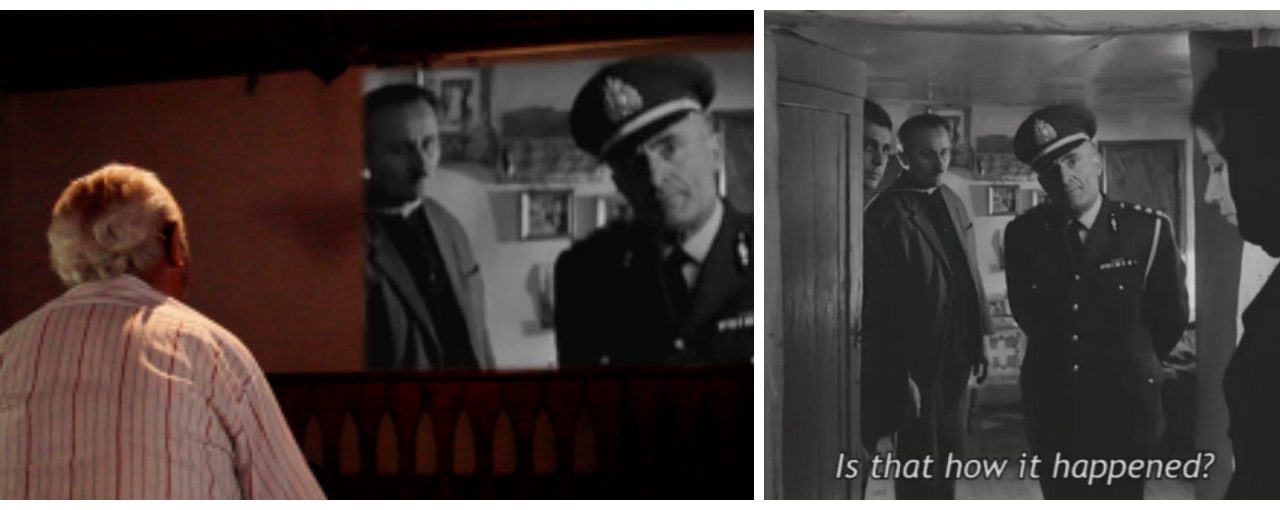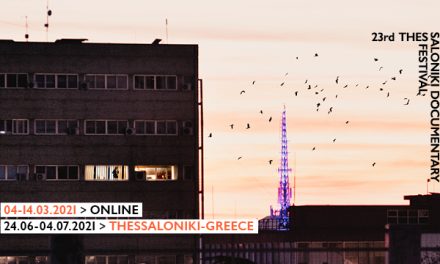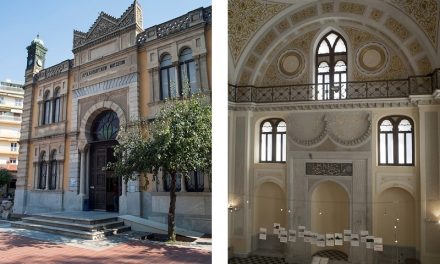In 1969 the famous director Theo Angelopoulos shoots his first feature film «Reconstruction» in the village of Monodendri in Ioannina, northern Greece. In the summer of 2013 Lefteris Rizos, a permanent resident of the village who was an extra in this important film, talks about the noose that they slipped around his neck to serve the needs of the script.
A brief existential commentary is born through when the film is screened for him 44 years later. The noose in the film, the morality of its heroes, the life of Lefteris with the film crew, the experience that marked him, his own personal life and ethics, the friends who have gone – everything now acquires a different meaning for him as he looks back with the wisdom, the bitterness and the humor of his 92 years.
“Η Θηλειά” / “The Noose” (dur: 12′) is a documentary film written and directed by Vassilis Loules & Students of the ANIMART Documentary Workshop. “The Noose” is now available to watch for free on YouTube:
Theo Angelopoulos’ Reconstruction
“One of the most beautiful black-and-white films ever shot”, Theo Angelopoulos’ debut, Αναπαράσταση (Reconstruction), draws on the real-life murder of a Gastarbeiter (guest worker) in Germany by his wife and her lover.
Angelopoulos’s film features a reconstruction carried out by the examining magistrate and a dramatisation of events derived from local testimonies. Shot on location, Angelopoulos places the crime and its effects within a broader context of economic decline and mass emigration sweeping Greece during the 1960s. Barren landscapes, intensified by an arresting use of black and white photography (Cinematography by Giorgos Arvanitis), suggest the overwhelming sense of loss experienced in regional areas; the film’s opening notes that the village’s population has fallen from 1283 to 85 in the 30 years between two national censuses.
Angelopoulos’ film, released in 1970, contradicted a series of films – e.g. Zorba the Greek, Never on a Sunday, that reinforced the stereotype of Greece as a land of sun, passion and lively music. Instead, Angelopoulos shows that the stereotype is already a fading memory. The murder story, and its ‘reconstruction’, becomes a parable for the disruption of a community and a nation – Greece was under military rule at the time.
Theo Angelopoulos (1935–2012) is widely regarded as the greatest Greek filmmaker, having crafted an epic vision of modern Greece and the Balkans through allegories of its turbulent social and political history. His films are celebrated for their poetic and elliptical style, choreographed sequences and haunting cinematography. Angelopoulos’s career was marked by a number of loosely connected film cycles – a trilogy of history, trilogy of silence, trilogy of borders and unfinished trilogy of modern Greece.
Read more: The Films of Theo Angelopoulos: A Cinema of Contemplation; The Cinema of Theo Angelopoulos; Theo Angelopoulos’s Reconstruction; Discovering Theo Angelopoulos
Watch: Theo Angelopoulos on YouTube; “Reconstruction” Via Artificial Eye – with English subtitles; Watch the “Reconstruction” for free on YouTube (without subtitles):













